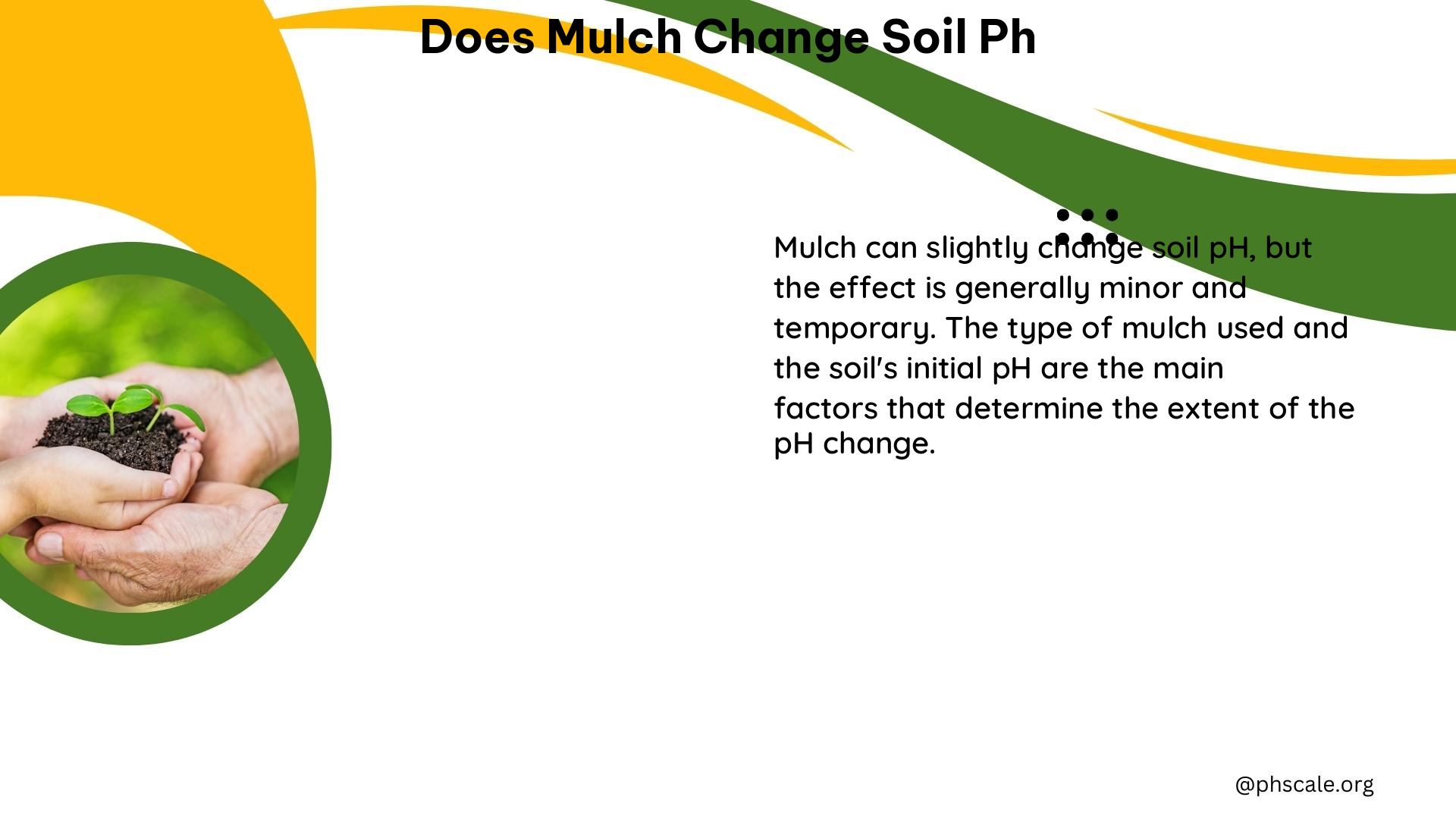Yes, mulch can change the pH of the soil, but the extent of this change depends on the type of mulch used and the initial pH of the soil. Mulches like pine straw, pine bark, and some species of eucalyptus release acidic substances as they decompose, which can lower the soil pH, while hardwood mulches tend to become alkaline as they break down.
Understanding the Impact of Mulch on Soil pH
Acidic Mulches
Mulches like pine straw, pine bark, and some species of eucalyptus release acidic substances as they decompose, which can lower the soil pH. These mulches are suitable for acid-loving plants like azaleas and rhododendrons.
Alkaline Mulches
Hardwood mulches tend to become alkaline as they break down, making them suitable for plants that do not require an acidic environment.
Neutral Mulches
Some mulches, like wood chips, can initially be acidic but eventually become more alkaline as they decompose.
Soil Type and pH Impact
The change in soil pH is generally more significant in fine sandy loam soils. For example, pine bark and cypress mulches can significantly decrease the pH of such soils.
Depth and Duration
The impact of mulch on soil pH can vary with depth and duration. In one study, the pH of soil treated with pine bark mulch decreased significantly at depths of 0–10 cm and 10–20 cm but not at 20–40 cm.
Quality and Contamination
The quality of the mulch material and potential contamination with pollutants can also affect the soil pH. Using quality-certified mulch and ensuring it is free from contaminants is crucial.
Balancing Soil pH

To balance the pH, it is essential to monitor the soil pH regularly and adjust the mulch accordingly. For example, if the soil is too alkaline, using an acidic mulch like pine bark can help lower the pH.
Other Factors Affecting Soil pH
Soil pH is influenced by various factors, including the presence of free hydrogen ions, nutrient availability, and the release of heavy metals and toxic substances. Understanding these factors is vital for maintaining optimal soil conditions.
Conclusion
In summary, the impact of mulch on soil pH depends on the type of mulch, soil type, and duration of application. By choosing the right mulch and monitoring soil pH, gardeners can create an optimal environment for their plants.
References:
– https://www.finegardening.com/article/mulch-for-a-healthy-garden
– https://www.reddit.com/r/Figs/comments/13oamfv/pine_bark_mulch_is_best_due_to_higher_acidity/
– https://www.substrate-ev.org/en/bark-mulch-no-need-to-worry-about-soil-acidification/
– https://www.ncbi.nlm.nih.gov/pmc/articles/PMC6364963/
– https://journalnow.com/gardeners-should-be-aware-of-how-mulch-affects-soil-chemistry/article_5798e65b-10c0-5782-a712-1d0b04fa4879.html
